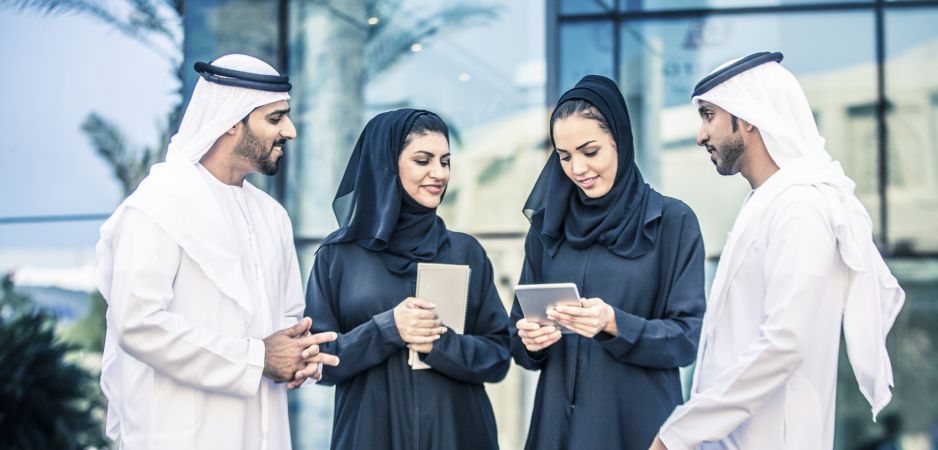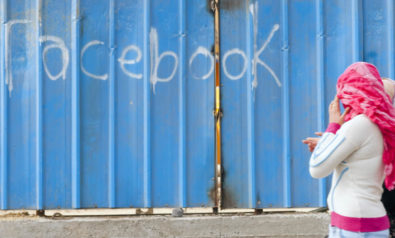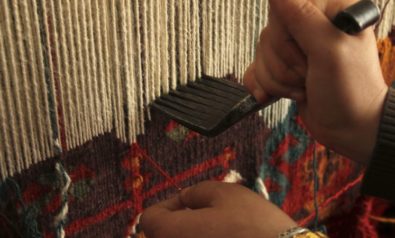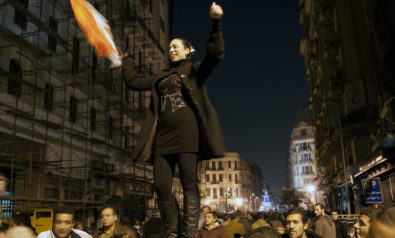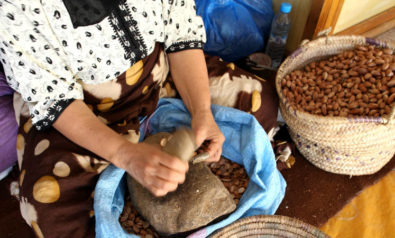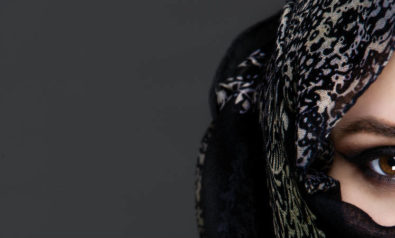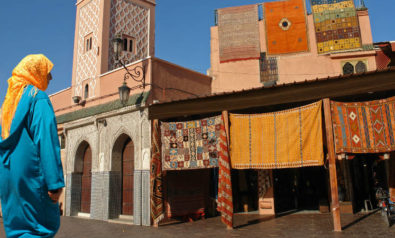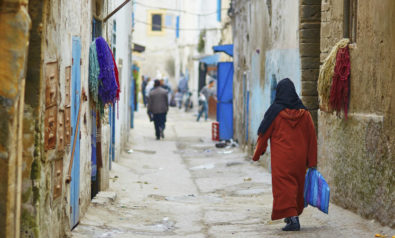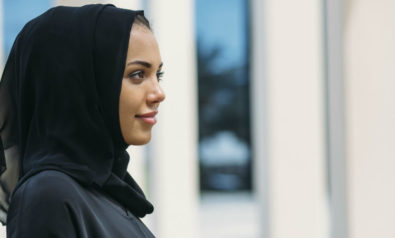Women in the Middle East and North Africa have been active in one of the most profound contexts of change.
Much has been written and speculated about life in the Middle East and North Africa. Some have experienced the love of being in a culture steeped in history and ancient folklore, romantic tales and strong cultural traditions. Others either love or loathe the contrast of modern cities like Dubai or Doha. These people simply prefer to submerge themselves in the hustle and bustle of everyday life, and join in the globalized “rat race” just like you would in any other major world city.
So, what makes the Middle East so enigmatic? What makes some people come for a holiday of a lifetime to satisfy their geographical curiosity and then never want to leave?
In a word: change. Over the past two decades, the Middle East has witnessed unprecedented levels of change. Not a single person—young or old, male or female—can escape the reality of being confronted with this on a daily basis. From the construction of iconic infrastructure in the region’s cities to the multicultural mesh of societal idiosyncrasies, constant change is an augmented feature of everyday life.
Arguably, the most perplexing example of change has been in the workplace. Many Middle Eastern societies—particularly in the Gulf Cooperation Council—have, in a relatively short space of time, been showcased on the world stage. This has been very positive for the economy, leading to a plethora of opportunities. Undoubtedly, this has projected an intense and unaccustomed spotlight on many areas of our societies, including education, culture, religion and economics.
Many people outside the Middle East have become increasingly curious and intrigued by such achievements, which for them appear as if they had emerged almost in a blink of an eye. Those achievements are now being benchmarked against the more familiar ones of developed nations.
With an expanding economy in a postcolonial world, we are reminded that for a long time the West has been thriving on what were, initially, resources borrowed from our immense academic and scientific contributions to the world. After all, Iraq was the cradle of world civilization, and now it is time to remind ourselves of our great history once again. It is time to tap into hidden reserves each and every one of us possesses in our own field and social function to once again be great.
The Contribution of Women in the Middle East and North Africa
One particular source of intellectual capability has been the contribution of women and the active role they play in society and in the workforce.
Women have been active in one of the most profound contexts of change. I say that with the greatest sense of pride, having been part of and witness to some of the most challenging initiatives seen in recent history. Organizations on all levels are restructuring, redefining, rebranding, growing and constantly innovating.
It is perplexing trying to think how the diversification of the economy away from a reliance on oil has challenged society to the extent that not only have companies and individuals embraced change, but in so doing they have smashed the glass ceiling, helping to pave the way for innovation and transformation of self and the community at large. And it’s not just in the Gulf. Across the Middle East and North Africa, similar challenges have been witnessed, maybe less publicized.
Despite the varying degrees of adversities women face, there is a common thread that aligns their professional and social goals—that is vision and a perpetuating self-belief of their own capabilities. This has, however, come at a cost for many where the risks in navigating opportunities are not apparent, and the bureaucratic policies that fail to mitigate those factors, in fact, compound matters beyond one’s individual control.
This comes hand in hand with the need to be resilient. Having learnt this from my own personal journey, the need to be resilient is one of the hardest competencies to master in light of constant change. The exposure on the world platform has undoubtedly created unprecedented opportunities. On the other hand, it has also highlighted many critical areas for development. Yet most observers agree that women’s role in the workplace and in society is notably helping to build bridges between the labor market requirements and education, paving new roads to success.
In this interdisciplinary, inter-gender context, the role of women in the workplace has its own history. The cases range from women being largely disenfranchised to achieving financial and social liberation and almost everything in between. Women are somehow viewed as been being subjugated to the arbitrary power of men. But whilst certain cultural practices maintain their inertia, the reality is very different.
Stereotypes and Cultural Expectation
It’s fascinating to see how curious people are to discover the unexpected within our culture and society. So many innuendos and nuances exist concerning so-called “cultural restrictions,” particularly with regard to women and how “oppressed” we are supposed to be. And yet, as I write this article, I am reminded that it’s not the supposed oppression that the West associates with the issue of women’s role in society, but more the barriers to change that are generally felt by society as a whole.
 Fair Observer provides you deep and diverse insights for free. Remember that we still have to pay for servers, website maintenance and much more. So, donate now to keep us free, fair and independent.
Fair Observer provides you deep and diverse insights for free. Remember that we still have to pay for servers, website maintenance and much more. So, donate now to keep us free, fair and independent.
The only difference for women, regardless of geographical position or culture, is that “it’s a man’s world.” But even James Brown, while affirming that sentiment in his song, insisted: “It’s a man’s world, but it wouldn’t be nothing without a woman or a girl.”
It is through women in the workplace and their role in education and the mentorship that the understanding of cultural sensitivities and emotional differences comes to the force, that cultural stereotypes are challenged and, in some cases, completely overhauled. It’s not that men can’t do it. It’s that women are doing it and making contributions in their own unique way.
From the visionary and supportive leadership in some of our Middle Eastern nations, such as the United Arab Emirates, we see many beacons of hope for change in motion. As HH Sheikha Fatima Bint Mubarak said:
“In a world dominated by turmoil and conflicts, I believe that women are capable of disseminating Islamic culture and instilling its spirit in the new generation. This capability is closely linked with women education and the guarantee of living in a community, which provides equal rights and obligations. Based on this belief, I am committed to continue to work relentlessly to ensure that women remain fundamental partners in the growth and development process. I will continue to support women wherever they are, empowering them to manifest their status as the key to peace in our present world.”
The Paradigm of Respect in the Middle East
Middle Eastern men as a whole are very supportive of women, and the dynamics between the sexes stems from a bond and respect of the different roles and responsibilities each holds. With the advent of globalization, these roles and responsibilities are, to some extent, being obscured. Game theory teaches us, through the famous prisoner’s dilemma, that in times of uncertainty, cooperation pays.
In the same spirit, by working toward an integrated society, we can contribute to global empowerment while producing an economically sustainable impact without necessarily destabilizing or radically challenging the status quo. This paradigm is rooted in the strong traditions of cultural and gender identity particular to our culture and yet allows for flexible adaptation and the embrace of modern life.
What the Middle East needs are visionary role models of leadership that can inspire individuals and nations, in particular those that hold steadfast to their collective values while avoiding the perpetuation of unhealthy competition as opposed to cooperation, support and mentorship.
In order to achieve this and deliver real value, socioeconomic frameworks need to be robust and address global needs. They must not depend merely on “goodwill” or the individual’s assertion of ethics, but rather prove strategic enough to take into consideration long-term sustainability, focused on the collective benefit of all—both men and women.
Education is the key that brings about change in a profound way. This is because education, training and personal development converge with economic gains at the point of creativity and innovation, thus rendering effective outcomes.
The views expressed in this article are the author’s own and do not necessarily reflect Fair Observer’s editorial policy.
Photo Credit: GCShutter
Support Fair Observer
We rely on your support for our independence, diversity and quality.
For more than 10 years, Fair Observer has been free, fair and independent. No billionaire owns us, no advertisers control us. We are a reader-supported nonprofit. Unlike many other publications, we keep our content free for readers regardless of where they live or whether they can afford to pay. We have no paywalls and no ads.
In the post-truth era of fake news, echo chambers and filter bubbles, we publish a plurality of perspectives from around the world. Anyone can publish with us, but everyone goes through a rigorous editorial process. So, you get fact-checked, well-reasoned content instead of noise.
We publish 2,500+ voices from 90+ countries. We also conduct education and training programs
on subjects ranging from digital media and journalism to writing and critical thinking. This
doesn’t come cheap. Servers, editors, trainers and web developers cost
money.
Please consider supporting us on a regular basis as a recurring donor or a
sustaining member.
Will you support FO’s journalism?
We rely on your support for our independence, diversity and quality.


